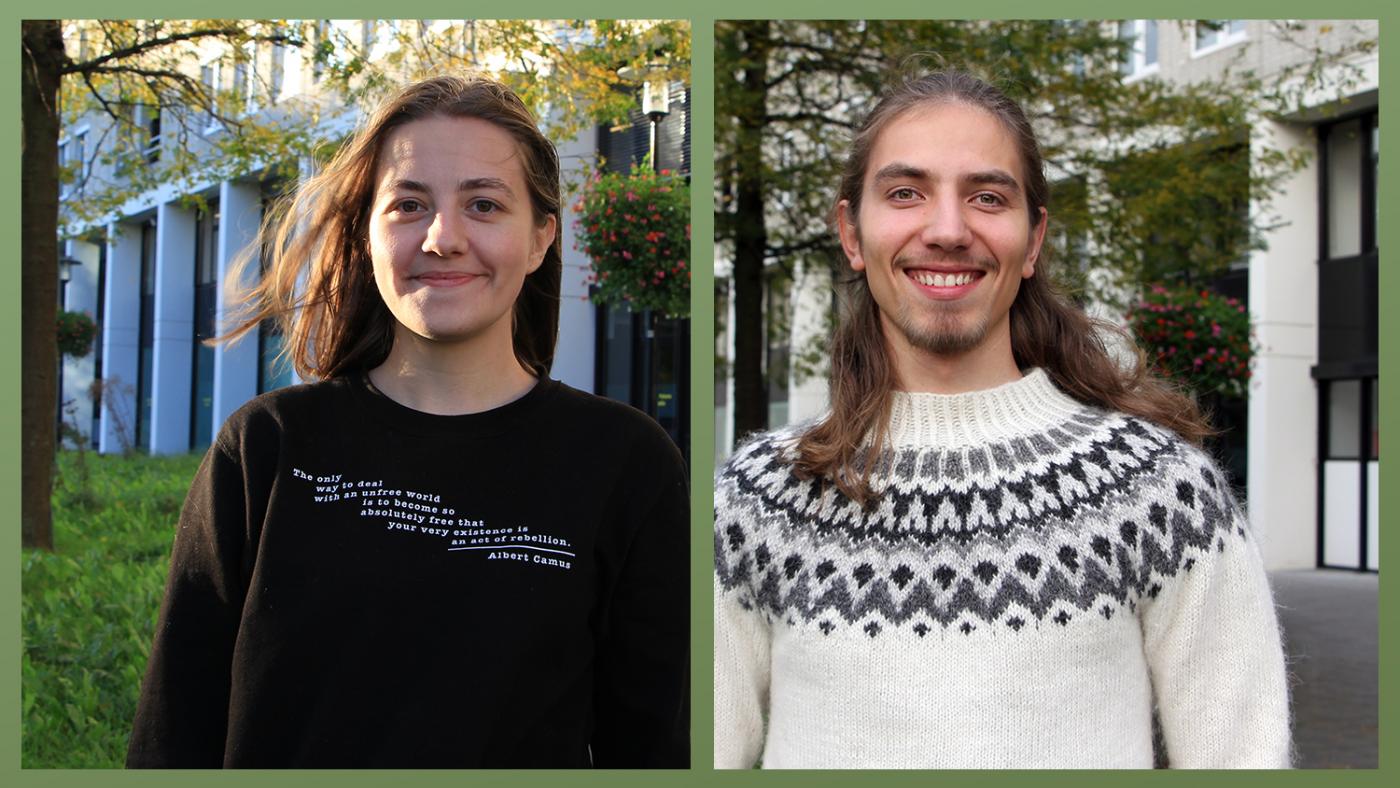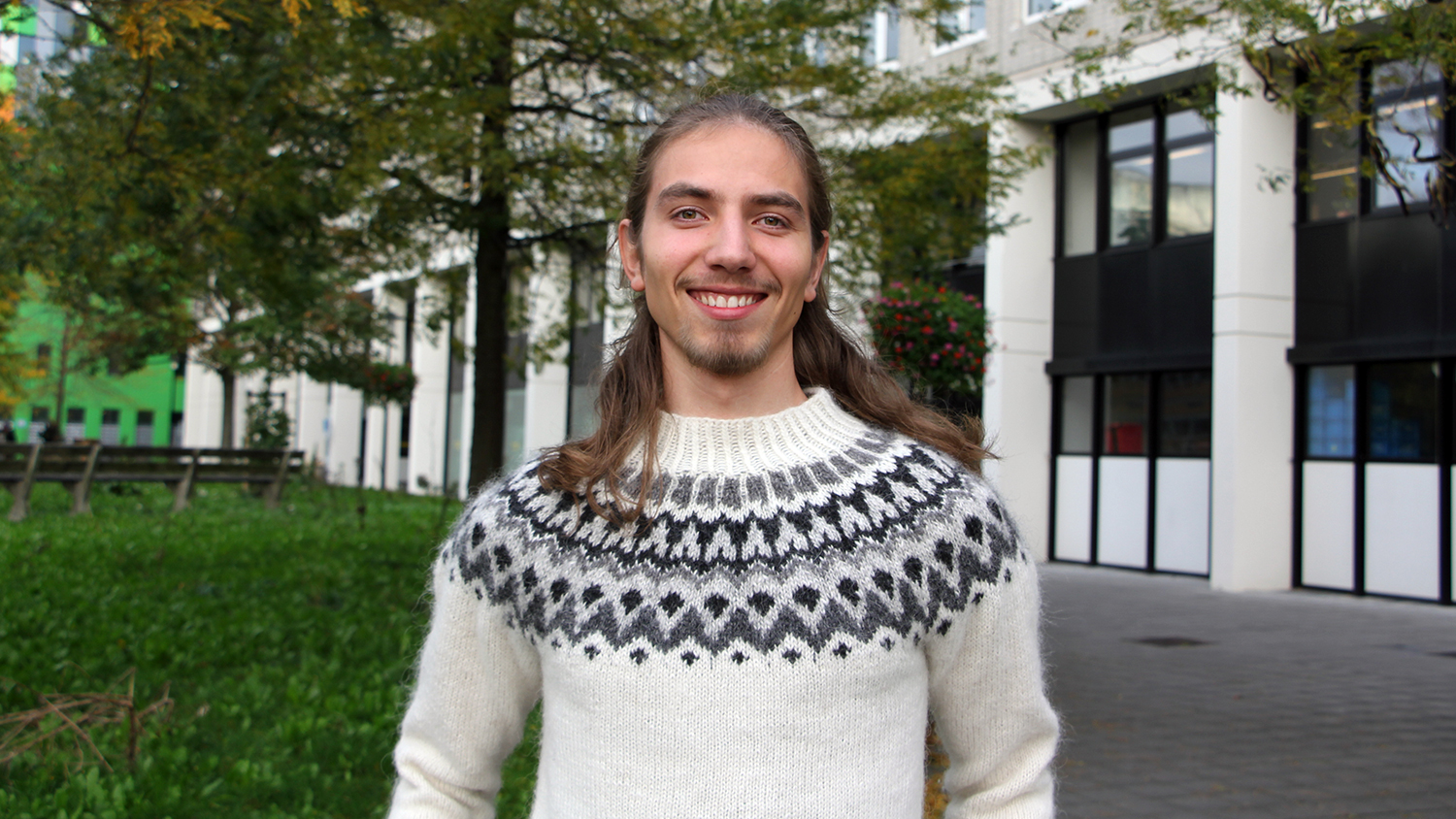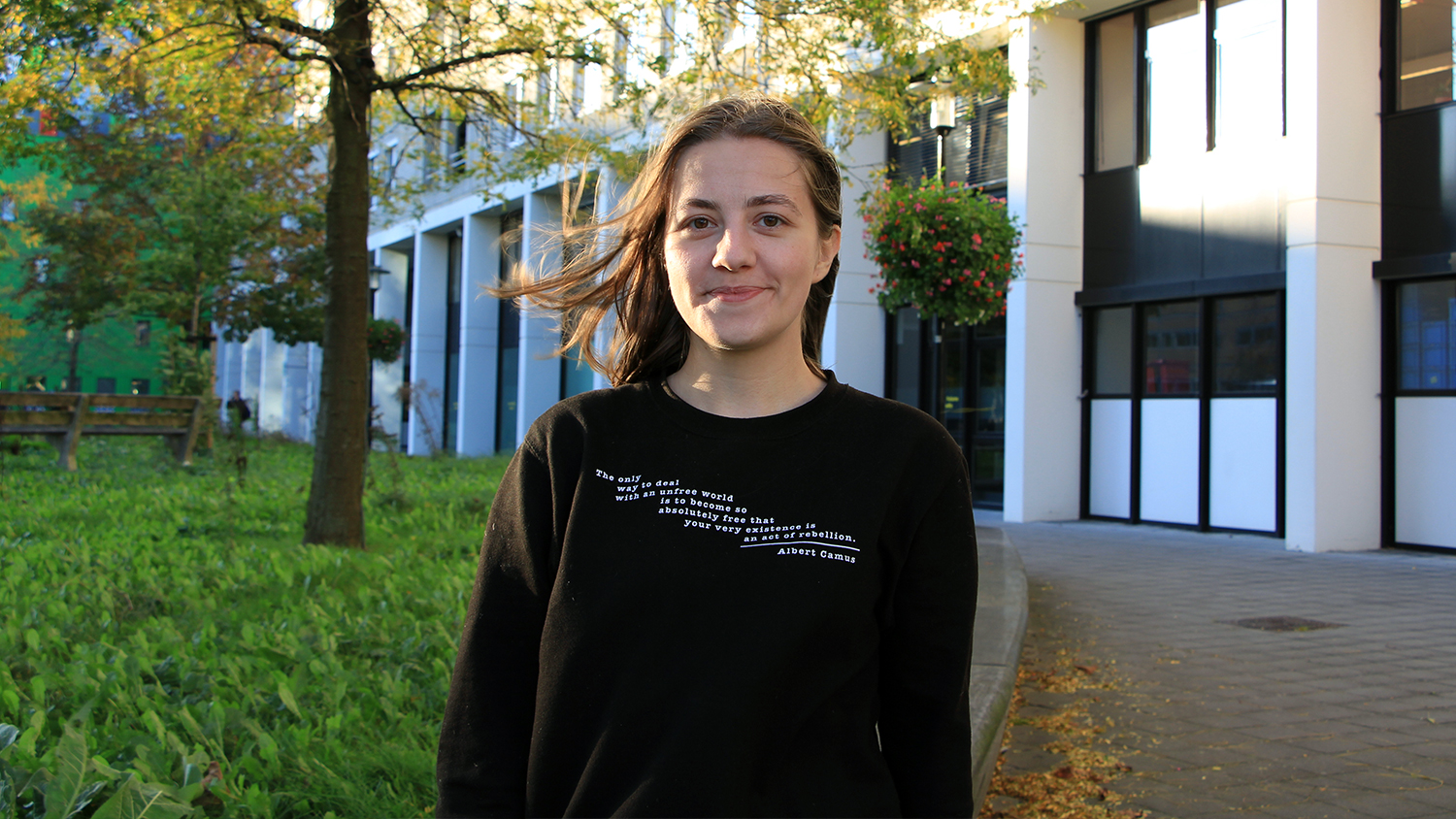These UU students are raising their voices at COP in Glasgow: ‘Otherwise, nothing will happen’

Finnur Racart Andrason (19) from Iceland and Barbora Kvasnickova (22) from the Czech Republic are both second-year Global Sustainability Science students as well as members of the national youth delegation of their respective countries. In that position, they speak up, hoping to be heard by the world leaders for their negotiation table.
“We know that if we don’t act now, we’re harming future generations every day,” Barbora says, just before she’s off to Glasgow. Finnur: “But the current generation, too. The climate crisis is already a reality for hundreds of thousands, even millions of people worldwide. It’s important to me to fight for the climate, because it’s important for humanity.”
Huge gap
The international climate summit in Glasgow is the most important one since the summit in Paris in 2015. The biggest victory achieved by the Paris Climate Agreement at the time was the promise of state leaders to limit global warming to no more than 2 degrees Celsius, and preferably 1.5. But it doesn’t seem like the countries are going to achieve the climate goals.
“For this climate summit, leaders have to at least stick to the emission reductions established in the Paris agreements,” Barbora says. “I’d prefer to see them raise their goals for the climate, but I don’t have much faith in that happening. They should also end the use of fossil fuels, or at the very least, stop subsidising them.”
Glasgow is turning into an area of protests in the two weeks of the climate summit, with the biggest demonstrations taking place on Friday and Saturday. Finnur and Barbora are also going to spend time on the streets of Glasgow to raise their voices. They want to pressure countries from inside and outside the walls of the summit. “There’s a huge gap between the promises governments make and what actually needs to happen to solve this climate crisis. The recent United Nations report shows that national governments are only realising 7.5 percent of emission reductions, while the IPCC states that we need emission reductions of 55 percent before 2030 in order to have a chance of limiting global warming to 1.5 degrees.”

Finnur Racart Andrason.
“If rich European countries aren’t achieving these emission reductions, how can we expect the rest of the world to achieve high climate goals?” Finnur asks. “There’s not a single western country that has raised its climate ambitions enough. I’m hoping to see climate leaders in Glasgow, because I know there are countries who have the potential to lead by example.”
“Hopefully, the climate summit will also hold large corporations accountable for their share in the climate crisis,” Barbora says. “The five richest countries participating in the summit together – including China, the USA and Germany – have less money than the one hundred richest companies each,” Barbora says. “It’s not just governments that need to solve the climate issue, it’s corporations too. If we, the people, make ourselves heard, politicians have the support they need to establish climate laws that restrict companies.”
Look the other way
“It concerns me that people don’t seem to realise we’re in an emergency situation,” Finnur continues. “The consequence of this lack of awareness, or willingness to admit the severity of the situation, is that people in power don't take any action.”
“At school in the Czech Republic, I learnt nothing about global warming,” Barbora echoes Finnur’s concern. “Despite the fact that it’s such an urgent issue, and it’s happening now. The climate problem as whole is difficult to understand, because it’s so big and all-encompassing: floods, forest fires, poverty. It’s easier to just not think about it, or not act on it. I think that’s in our nature as humans, because thinking about such negative outcomes consumes you.”

Barbora Kvasnickova.
“Sometimes, it’s hard to be so closely involved in the climate movement. You’re hyper-aware of the possible, catastrophic consequences,” Finnur says. “I often feel despair and fearful when I think about the future. There’s so much to worry about in the climate crisis. However, I try not to focus on that, but rather on the things I can have the most impact on. My motivation is hope. If I lose my hope, I’ve got nothing to hold on to in the fight for a better future. Quitting is not an option.”
Common enemy
“I’ve felt so many different emotions,” Barbara says. “At first, I was confused, then frustrated and angry, and then I found peace with it. Now, I associate climate change with hope. We can beat this climate crisis. For the first time in history, humankind is fighting a common enemy. We’ve got a shot at uniting the world. It’s possible that new world organisations or political systems will be created.”
“I know for sure that I want children, and I’m looking forward to being a mother one day. Including a beautiful future for my children. But perhaps I’m a little naïve,” Barbora says. “Four in ten young people are hesitant about having children, purely because of how fucked up the world could get. I can’t imagine the psychological process it takes to reach that decision. I’m nowhere near there yet, and if I do get to that point, the world’s in a desperately poor place.”
Responsibility
Despite the hope Barbora’s feeling, she doesn’t have high expectations of the Glasgow climate summit. “There are a lot of these types of conferences, like the pre-climate summit that took place a month before. I know from experience that in terms of climate negotiations, not much is going to happen. I don’t necessarily see that as a problem, because we do need the climate summit, or we’re not going to get anywhere. The climate summit is the ultimate moment to put the climate crisis on the agenda all over the world. The media report about it, and it makes people think.”
“A climate conference can seem big and important, but it’s important to realise that climate conferences aren’t everything when it comes to climate solutions,” Finnur agrees. “It needs to be solved on a national and local scale. Cities and municipalities have a lot of responsibility in implementing the climate policies. We, the people in society, also have an important role in combatting global warming.”